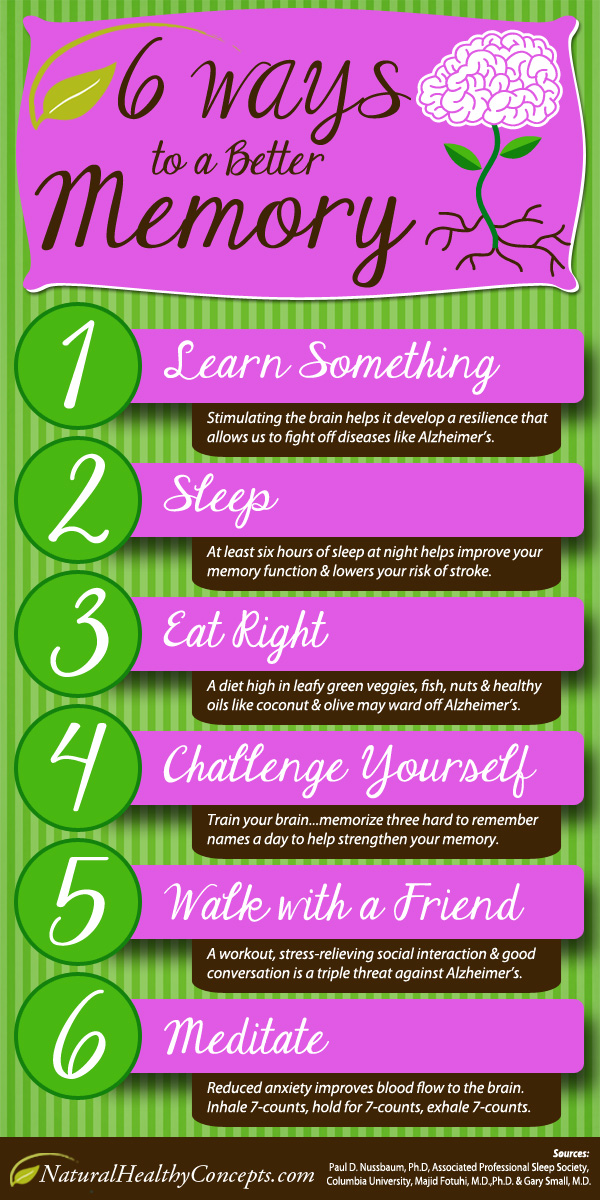If you’re feeling forgetful and wish you had a better memory, there are numerous memory improvement tips that can help you enhance your recall abilities. From simple memory techniques to effective strategies for remembering names, optimizing brain function is crucial in keeping your mind sharp. Research has shown that engaging in specific exercises not only boosts memory tips but also significantly optimizes recall during important moments, whether it’s a test or a conversation. Renowned brain scientists Andrew Budson and Elizabeth Kensinger shed light on the science of memory and share actionable advice for everyone looking to improve their memory. Implementing these insights can empower you to retain names, facts, and skills more efficiently, transforming your cognitive capabilities in everyday life.
Ever wondered about strategies to enhance your cognitive recall or how to improve your ability to retain information? Memory enhancement encompasses various practices designed to boost mental acuity and improve information retention. By understanding how to effectively remember details, such as acquaintances’ names, you can significantly elevate your everyday interactions. Optimization of recall can be achieved through diverse methods, allowing you to navigate social or academic challenges with greater confidence. When you embrace research-backed techniques for honing your memory, you unlock the potential to greatly improve your overall brain performance.
Understanding Memory Techniques for Better Recall
Memory techniques are strategies designed to enhance the brain’s ability to store and retrieve information effectively. For instance, using mnemonic devices allows individuals to create associations that make recall easier. These techniques leverage familiar concepts or structures, like acronyms or visual imagery, to facilitate memorization. Another popular method is the method of loci, or the memory palace technique, which involves visualizing a familiar place and associating the information to be remembered with specific locations within that space.
Understanding how our brain processes information is essential in applying these memory techniques. Recent studies indicate that having a strong foundation in memory skills can significantly improve our ability to learn new information. Integrating physical activities, such as regular exercise, into your routine can also boost brain function, making these memory strategies even more effective. When we actively engage our bodies, we stimulate brain health, creating an optimal environment for recall and retention.
Memory Improvement Tips to Enhance Brain Function
To improve memory, it’s vital to adopt specific tips and practices that promote cognitive health. One of the primary memory improvement tips includes maintaining a balanced diet rich in antioxidants, whole grains, and healthy fats. Foods like blueberries, salmon, and nuts are known for their memory-boosting properties. Additionally, staying hydrated is crucial as even mild dehydration can impair cognitive functions, including memory retention.
Another effective strategy is consistent mental exercise, which can take the form of puzzles, learning new skills, or even engaging in conversations that challenge your thinking. This not only sharpens your memory but also enhances overall brain function. Studies affirm that lifelong learning and challenging the brain with various activities can lead to improvements in neuroplasticity, thus optimizing recall and fostering healthier cognitive processing.
Techniques for Remembering Names Effectively
Struggling to remember names is a common issue, but several techniques can aid in this memory challenge. The first approach is to focus on the person’s name immediately upon introduction, repeating it in your mind and utilizing it in the conversation. This active engagement reinforces the connection to the name. Another effective method is the use of visual associations; by linking the name to a characteristic feature or creating a vivid mental image, you can significantly improve your recall ability.
Additionally, it can be helpful to ask questions or receive details about the person while you’re engaging with them, linking their name to their story, profession, or interests. This deeper level of personal connection not only makes the name more memorable but also enhances your overall interaction with the individual. Implementing these techniques ensures that when you find yourself in a social setting, recalling names becomes a natural and effortless task.
How Brain Function Influences Memory Retention
The intricate relationship between brain function and memory retention is a fascinating aspect of neuroscience. Our memories are crafted by complex neural networks within the brain. The hippocampus plays a crucial role in the consolidation of information from short-term to long-term memory, and therefore, understanding its functions can lead to more effective strategies for memory improvement. Factors such as stress, lack of sleep, and poor nutrition can negatively impact the efficiency of these networks, interfering with our ability to remember.
Engaging in regular cognitive challenges promotes brain health and can lead to significant improvements in memory retention. Activities such as learning a new language, playing musical instruments, or solving mathematical problems stimulate neuroplasticity, allowing the brain to create new pathways for memory retrieval. A proactive approach to brain health ensures that memory retention is not only maintained but can also be effectively enhanced over time.
Optimizing Recall with Proven Memory Tips
Optimizing recall is essential for both academic performance and everyday interactions. Proven memory tips include creating organized notes and studying settings that minimize distractions. The act of writing information down not only reinforces memory through physical engagement but also allows for better organization, making it easier to revisit and revise materials when needed. Utilizing study aids like flashcards can provide necessary repetitions that enhance retention.
Moreover, employing spaced repetition techniques—where learners review information at gradually increasing intervals—has been shown to promote long-term retention effectively. Combine this with adequate rest and practice periods, and you create an optimal learning environment that enhances recall for important information, whether it be for exams, presentations, or social situations.
The Relationship Between Stress and Memory
Understanding the relationship between stress and memory is vital for effective recall. When we experience stress, our body’s fight-or-flight response can either enhance or impair our ability to access memories. In high-pressure situations, this response can heighten focus and recall for crucial information; however, chronic stress can have detrimental effects on both short-term and long-term memory function.
To manage stress levels, it is essential to incorporate stress-reduction techniques into daily routines. Practices such as mindfulness, meditation, and regular physical exercise can significantly alleviate stress, thereby aiding in a clearer state of mind conducive to memory retention. Ultimately, achieving a successful balance between stress management and memory optimization can result in improved recall capabilities.
Incorporating Physical Exercise for Memory Boost
Incorporating physical exercise into your routine is one of the most impactful strategies for boosting memory and enhancing overall brain function. Exercise increases blood flow to the brain, promotes neurogenesis, and stimulates the production of brain-derived neurotrophic factor (BDNF), a protein essential for learning and memory. Engaging in aerobic activities, such as running or swimming, has been shown to have particularly strong effects on cognitive performance.
Moreover, regular physical activity can improve mood and reduce anxiety, creating a more favorable mental environment for memory tasks. Group activities, such as team sports, can combine social interaction with physical exercise, further enhancing cognitive abilities. Therefore, integrating exercise into your daily life is a powerful way to not only boost your physical health but also to optimize your memory.
Cognitive Strategies for Better Memory Performance
Cognitive strategies are essential for enhancing memory performance, especially in academic and professional contexts. Techniques such as chunking information into smaller, manageable units can make overwhelming data easier to remember. For instance, instead of trying to remember a long string of numbers, breaking them into groups enhances their recall. Logic-based activities, such as predicting future trends based on current knowledge, also invigorate cognitive processes associated with memory.
Additionally, visualization techniques can significantly enhance information retention. By creating mental images to represent data or ideas, individuals can engage different parts of the brain, thereby reinforcing memory connections. Whether it’s through drawing diagrams, storytelling, or even using apps designed for active recall, these cognitive strategies pave the way for superior memory performance in any setting.
Using Technology to Aid Memory Enhancements
In today’s digital age, various technologies are available to support memory enhancement. Apps designed for flashcards, spaced repetition, and note organization can streamline learning processes and optimize recall. For example, platforms like Quizlet or Anki utilize interactive features that cater to individual learning styles, making information retention more efficient and engaging.
Moreover, technology can bridge the gap between learning and everyday memory tasks. Reminder and organizational apps help individuals manage their schedules and relationships effectively, reducing cognitive load. As we harness these technological advancements, we not only improve memory performance but also develop healthy habits that foster long-term cognitive health.
Frequently Asked Questions
What are some effective memory improvement tips?
To improve memory, consider using memory techniques like mnemonic devices, visualization, and spaced repetition. Staying physically active, managing stress, and ensuring adequate sleep can also optimize recall and enhance brain function.
How can I remember names better using memory techniques?
To remember names better, use association methods. When you meet someone, repeat their name aloud and associate it with a visual cue or a characteristic of the person. This engages memory tips that boost recall during introductions.
What lifestyle changes can optimize my brain function and memory?
To optimize brain function and enhance memory, incorporate regular physical exercise, eat a balanced diet rich in omega-3 fatty acids, engage in cognitive training activities, and prioritize sleep to facilitate memory consolidation.
What is the method of loci and how can it improve my memory?
The method of loci, or memory palace technique, involves visualizing a familiar place and associating items you want to remember with specific locations within that mental space. This powerful memory technique can dramatically enhance your recall abilities.
Are there specific brain exercises to improve memory recall?
Yes, engaging in brain exercises such as puzzles, memory games, or learning a new language can improve cognitive function and memory recall. Regular mental challenges keep the brain sharp and enhance overall memory performance.
How does sleep affect memory improvement and recall?
Sleep plays a critical role in memory improvement. During sleep, the brain processes and consolidates memories, enhancing recall. Prioritizing quality sleep can significantly boost your ability to remember important information.
Can diet really affect memory function and recall abilities?
Absolutely! A nutritious diet, particularly one high in antioxidants, omega-3 fatty acids, and vitamins, supports brain health, improves memory function, and optimizes recall abilities.
What are some practical memory tips for students before exams?
Students can enhance memory recall before exams by using spaced repetition, summarizing information into digestible chunks, teaching the material to someone else, and ensuring proper rest the night before the test.
Is multitasking detrimental to memory and recall?
Yes, multitasking can degrade memory recall. Focusing on one task at a time maximizes brain function and helps solidify memories better than when attempting to juggle multiple tasks simultaneously.
What role does stress play in memory improvement?
While acute stress can enhance focus on critical tasks, chronic stress negatively impacts memory function. Learning stress management techniques can thereby improve overall memory recall.
| Question | Options | Correct Answer |
|---|---|---|
| 1. You’re more likely to master a new skill if you practice: | A. Seven hours once a week B. One hour a day for seven days |
B |
Summary
Memory improvement tips can revolutionize how effectively you remember information. Whether it’s stepping into a social gathering or preparing for an important exam, utilizing tested strategies can significantly enhance your recall abilities. The tips shared by renowned psychologists emphasize practice, the benefits of adequate rest, and even the innovative technique of utilizing “memory palaces”. By incorporating these practical approaches into your daily routine, you can enhance your memory retention and recall efficiency.



